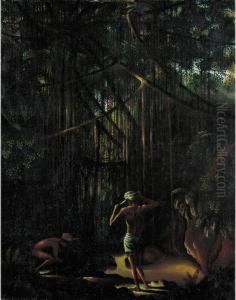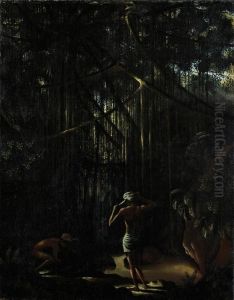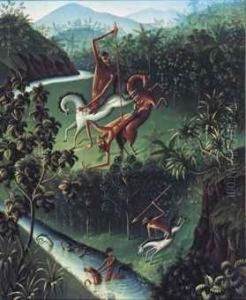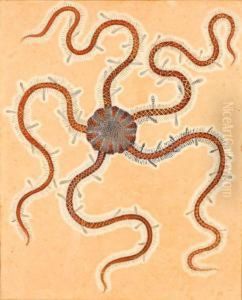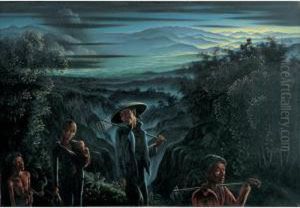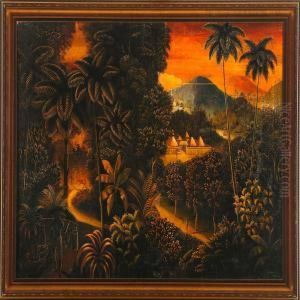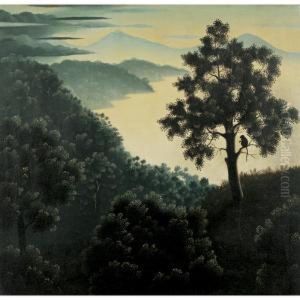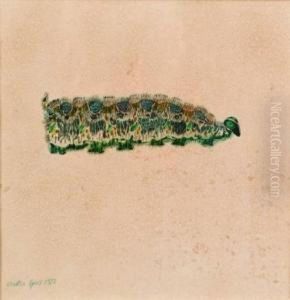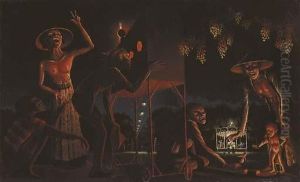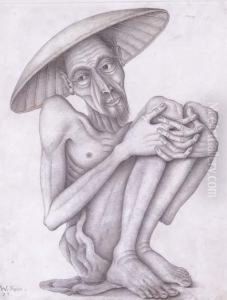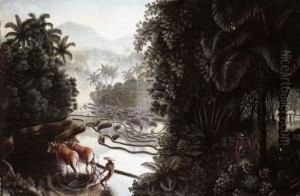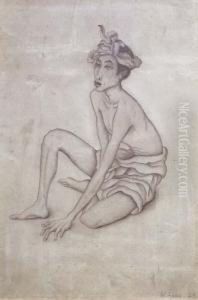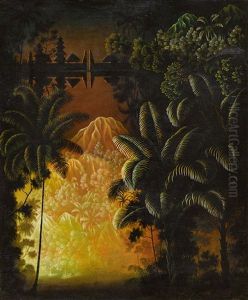Walter Spies Paintings
Walter Spies was a Russian-born German painter, musician, and a pivotal figure in the development of Balinese art and culture. Born on September 15, 1895, in Moscow, Spies grew up in an artistic and intellectual environment, which shaped his early interest in the arts. He moved to Germany in his youth, where he was exposed to various artistic movements of the early 20th century, including Expressionism and Cubism. However, it was his move to Bali in 1927 that marked the beginning of his most influential period.
In Bali, Spies immersed himself in the local culture and became a central figure in the artistic community, influencing not only local artists but also Western artists and intellectuals who visited the island. His work from this period is characterized by a blend of Western artistic techniques and Balinese themes and motifs, contributing significantly to the development of a new Balinese artistic identity. Spies was instrumental in establishing Pita Maha, an artists' cooperative that aimed to foster artistic creativity and maintain high standards of art in Bali.
Spies's life in Bali was not without controversy. In 1938, he was arrested and imprisoned by the Dutch colonial authorities on charges of homosexuality, which was illegal at the time. After spending a year in prison, he was released but remained under house arrest. His life came to a tragic end when he was killed during a Japanese bombing raid in 1942, while being transported aboard a ship as part of a prisoner exchange program.
Throughout his life, Walter Spies made a profound impact on the art and culture of Bali, leaving behind a legacy that continues to influence artists and draw people to the island. His work is celebrated for its unique combination of Western and Eastern artistic principles, and his life story reflects the complexities and cultural exchanges of the early 20th century.
